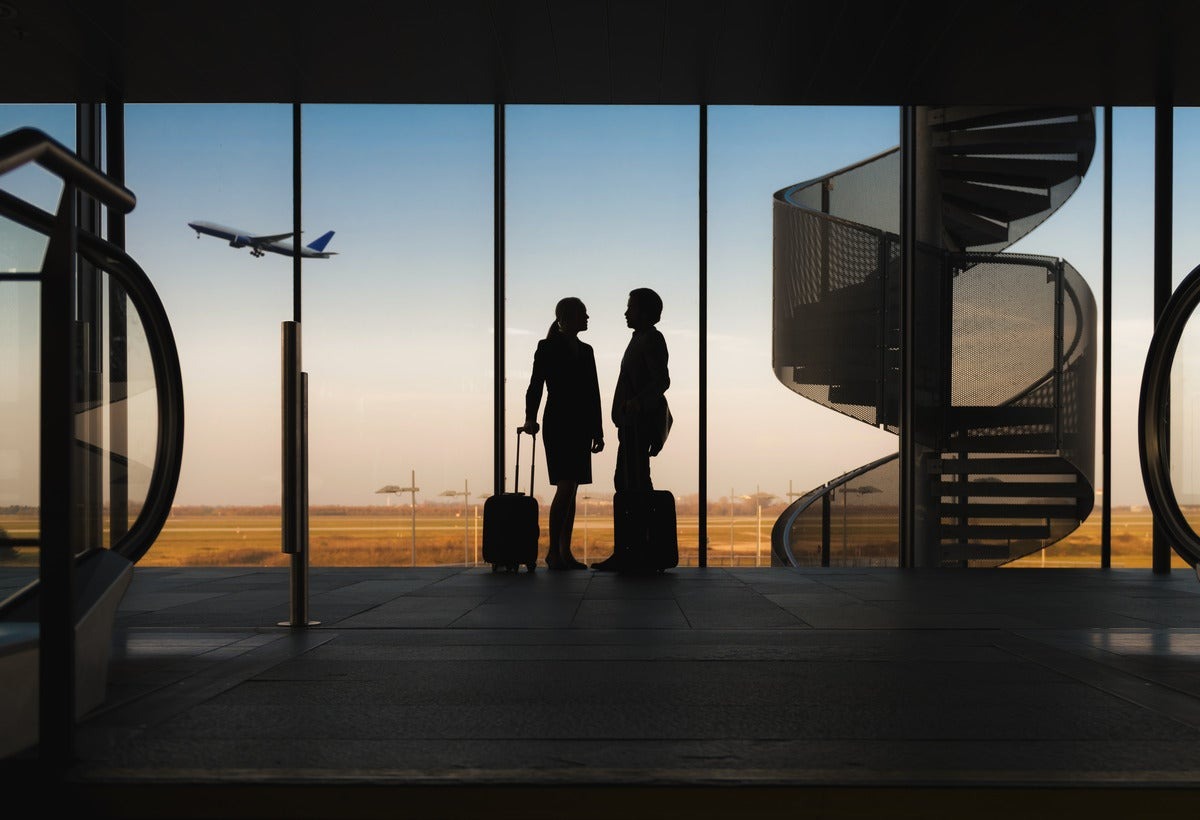Comment
Simplifying crew transport can ease the pain of flight disruptions
Jenna Brown, director of Uber for Business UK, explains how smarter ground transport solutions can help make life easier for airline crew.

When it comes to organising ground transportation for crew members, airlines need to consider several factors. Credit: Hinterhaus Productions / GettyImages
The recent disruption caused by a power outage at Heathrow airport led to delays for more than 1,300 flights and forced approximately 290,000 passengers to adjust their travel plans. Sadly, this was not an isolated incident. Over the past year, passengers have also been affected by a whole series of incidents, ranging from IT outages to strike action.

Jenna Brown director of Uber for Business UK. Credit: Uber
Airlines across the globe regularly have to deal with disruptions, and it’s not always the fault of the airport. Delays and cancellations have risen by 35% since pre-pandemic levels for numerous reasons, such as operational challenges from staffing shortages and scheduling problems due to increased flight volumes.
When Irregular Operations (IROPs) of this nature occur, European policy demands that airlines take care of their passengers’ needs. This includes providing meals and refreshments, offering hotel accommodation (if an overnight stay is necessary), and covering transportation to and from hotels.
But what about the impact on the airline crew? If they are stranded in an unfamiliar location or arriving on a delayed flight late at night, then the crew members need to be able to get from the airport to their accommodation safely and smoothly. They also require easy access to food and drink so they can rest and regain their energy for their next flight.
Simple solutions in difficult times
It’s crucial that airlines are equipped to manage these scenarios, to keep them as stress-free as possible. This includes keeping the crew up to date with developments and providing assurance that they are doing everything in their power to minimise any inconvenience.
Facilitating hassle-free accommodation arrangements, providing easy access to meal vouchers, and a simple way to schedule or book rides all help with this, becoming particularly important when affected parties need transport to and from specific locations late at night or early in the morning.
Having these solutions in place also makes life less stressful if individuals are stranded in a city or facing an unscheduled, extended stay due to disruptions.
When it comes to organising ground transportation for crew members, airlines need to consider several factors. The first is the ability to book transport quickly and easily wherever they are in the world. Ideally, this will be a self-serve option that has the scale to operate globally.
Crew members may also want access to a range of ground transport options, so that they can choose one that best meets their needs. For example, if they know that they are travelling a long distance, they might want a more premium vehicle that offers comfort with extra legroom. Or if they are in a big city where there is a lot of congestion, they may opt for a sustainable ride in an electric vehicle.
If airlines could also incorporate meal vouchers into this solution, it would be a massive advantage, as it would reduce the burden placed on the operations teams during periods of disruption. These vouchers would enable individuals to order from local restaurants straight to their accommodation, allowing them to choose food based on culinary or dietary preferences.
Taking care of the crew
In these situations, the airline’s responsibilities also extend to ensuring the safety and wellbeing of their crew. Airlines have a duty of care to ensure that any onward transport is with an approved and vetted supplier.
Safety features such as end-to-end ride tracking can provide visibility into trips taken and offer peace of mind that crew members have arrived safely at their destination.
If the transport solution is integrated with safety and risk management tools – such as SAP Concur or ISOS Travel Tracker – airlines can quickly locate and identify employees and communicate with them. These tools can be particularly valuable during a crisis or natural disaster.
Crew transport: staying within budget
Finally, the ability to monitor expenses, set spending limits, and manage billing centrally is crucial to the need to control costs. Expenses can quickly add up if no clear guidelines are given around financial limits when booking transport.
But this is not just a business imperative. A streamlined and seamless expensing solution can also reduce the pain experienced by crew members affected and reduce the stress for all those involved. Having to keep track of receipts and process claims after the pain of a disruption just adds to the frustration.
Making this expense process automated greatly reduces the time and effort required from both crew members and financial teams. It also helps airlines more accurately monitor what crews have spent, to ensure fair usage, and allows them to set budget controls or spending limits to ensure costs stay within airline policies.
Now is the time to start thinking about safe and reliable transport options for crew members, so that if disruptions do occur during the busy summer months, airlines are well prepared to cope.